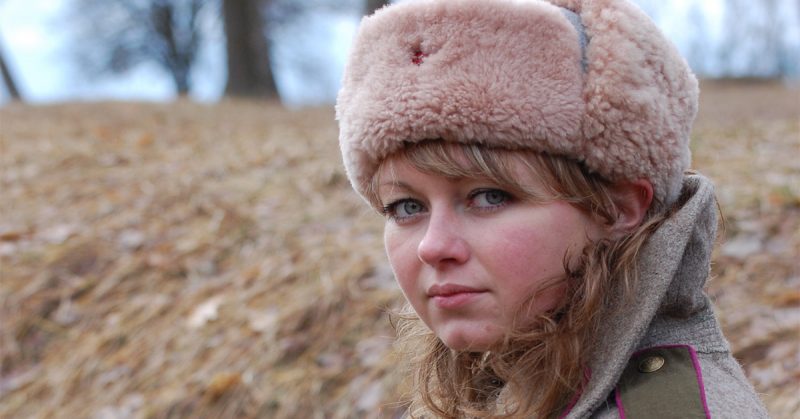Galina Dubeeva or Galya Zhang, was a Soviet military interpreter who died heroically in 1945 at the hands of Japanese militarists during the Soviet-Japanese war. In China, she was awarded the title of “Fallen Revolutionary” and many people know her name. In 2009, a monument to her was erected in her hometown of Suifenhe, China.
Galina Dubeeva was born on February 18, 1928 and was the only daughter of Chinese Zhang Huangxin and Ukrainian Fekla Leontievna. Galina had two older brothers. Her parents gave her an Orthodox name: Dubeeva Galina Vasilyevna.
At the age of eight, she entered the local school, which had been opened by Russian immigrants. After the Japanese army captured Suifenhe in 1933, the Japanese began to impose their own system of education. In all schools was a new subject–the Japanese language.
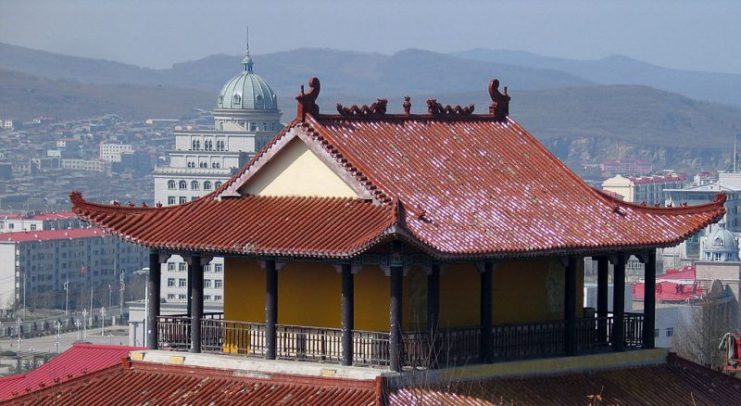
In 1941, at the age of 13, Galina began her working life, helping her father in a snack bar and reading lectures at the school. By this time, she was fluent in Chinese, Russian and Japanese and as a result, she was in demand as an interpreter and teacher.
In 1942, after graduating from the Russian migrant school, Galina officially began working in the same school, teaching music and Japanese. However, later she focused on helping her father.
In August 1945, after the Soviet Union declared war on Japan, 17-year-old Galina was invited to become an interpreter for negotiations between the Soviet and Japanese military. Galina ran to her mother, took her hand and said, “Mother, the Red Army asked me to work as an interpreter, to persuade the Japanese on Mount Beishan to surrender.”
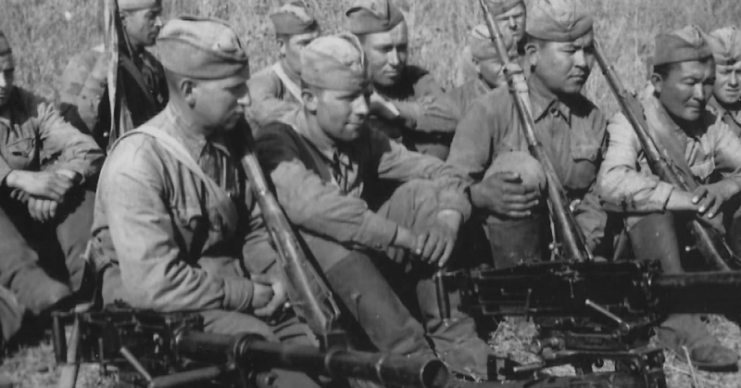
In response, Fekla cried, and afterwards gave her daughter a handkerchief, which is a symbol of well-being. After lunch on August 11, 1945, Galina, with three soldiers and an officer, went to the Red Army command post near the Japanese positions.
There they met with the commander of the 12th Infantry Division and wrote the text of the proposal for surrender. Galina spent the night at the command post.
At midnight, the regiment commander ordered Fedorchenko Stepan, the captain of the machine-gun company. to conduct a negotiation operation with the Japanese.
He created a small detachment of 15 experienced soldiers who were to be responsible for Galina’s cover. On the morning of August 12, the leaders of the 12th Division acquainted Galina with Captain Fedorchenko and after breakfast, they set out on their task.
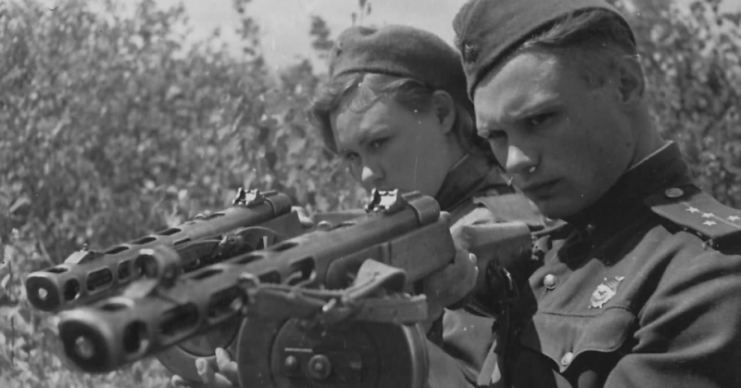
Galina walked ahead of the detachment and carried a white flag in her hand, with Fedorchenko next to her. At noon, after they approached the positions of the Japanese military, Galina began to call out: “We are delegates of the Soviet Red Army, responsible for peace talks, do not shoot and come out to negotiations.”
About an hour later, more than 10 Japanese soldiers with a white flag in their hands came out. They stood at a distance of about 164 feet (50 meters) from Galina and demanded that she would go alone to negotiate with them.
But Galina looked at Fedorchenko with frightened eyes and silently cried. The captain embraced her and said “Do not be afraid…think about the fact that the Japanese army agreed to negotiations. Believe that they will believe in our sincerity.”
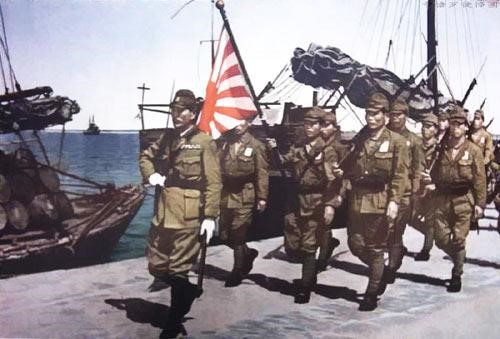
However, Galina was afraid, believing that if she left, she would not return. Fedorchenko insisted that she go to the talks. He referred to the fact that, besides Galina, no one could translate Japanese and the operation would fail.
She stopped crying and without saying a word went to the Japanese positions for negotiations. The last thing Captain Fedorchenko saw was Galina approaching the Japanese soldiers and then disappearing into the forest.
On the Japanese side, a detachment of soldiers with machine guns defended the place of negotiations. The talks took place not far from where Galina had disappeared. Thanks to the windless weather, the Soviet detachment could hear voices speaking in Japanese.
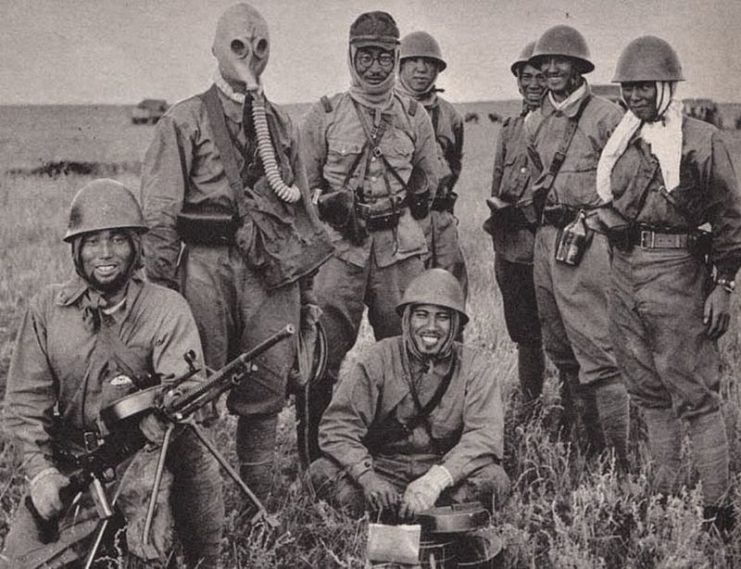
While the Soviets waited, shouts came and suddenly a shot occurred. Fedorchenko shouted the name of Galina, but did not hear her answer, and he reported the incident to the command post.
Japanese soldiers began to attack the positions of Soviet soldiers, thereby killing two and injuring three people. Fedorchenko managed to withdraw his detachment and return to the command post.
In the evening, a decision was made at the command post for a massive artillery strike in the area of the Tianchan Shan fortress. On August 15, the fortifications of the fortress were destroyed, most of the Japanese military were killed, and only 26 Japanese soldiers were captured alive.
After the battle, Galina’s family tried to obtain information about her at the headquarters of the Red Army and searched the mountain about 30 times, but to no avail.
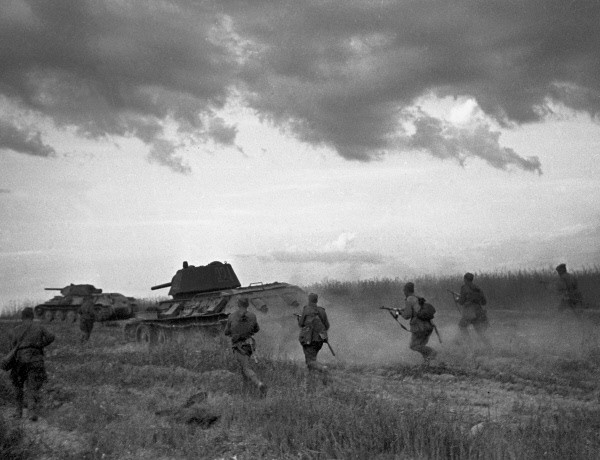
In 1984, archived records of the death of Galina Dubeeva were accidentally discovered by the historian Sun Boyan. Until 1997, he conducted a thorough investigation and restored the true history of the events that had occurred.
Thanks to Sun Boyan, people in China and Russia learned about Galina Dubeeva. In addition to the monument in Suifenhe, a Memorial Museum named after Galina was opened in 2013.
